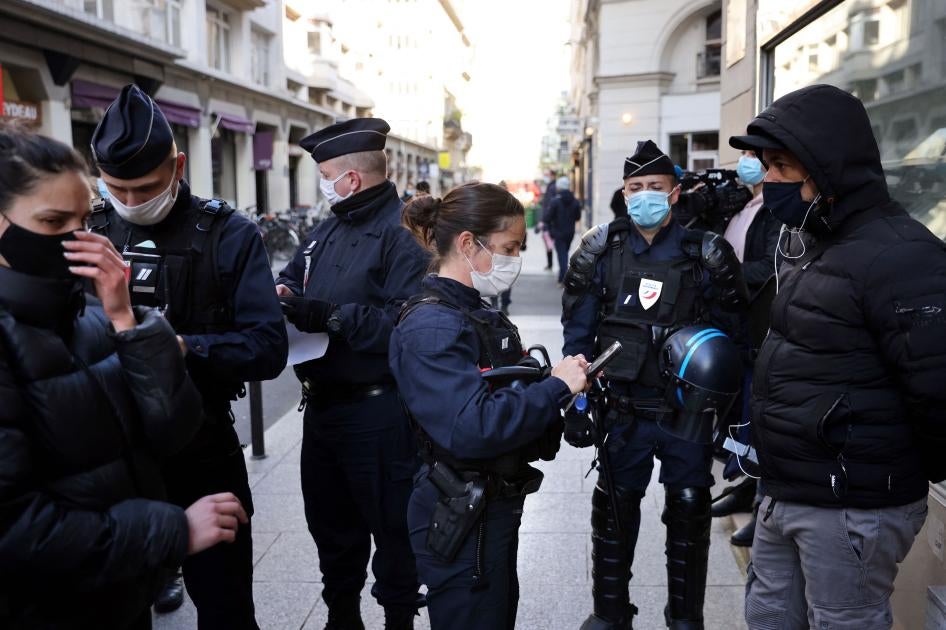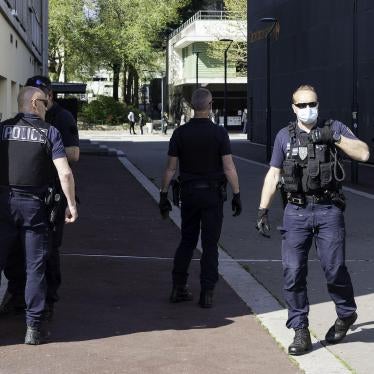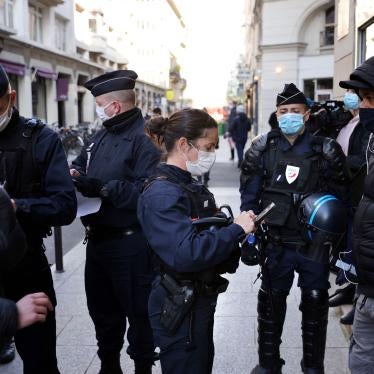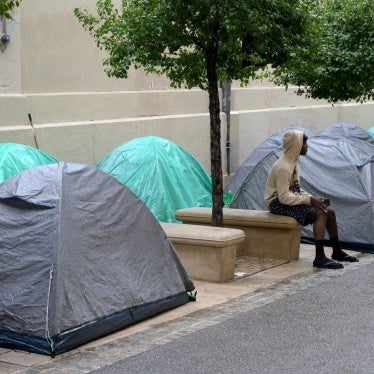Just over a year ago, the Council of State, France’s highest administrative court, recognized the State's failure to deal with the widely documented practice of racial profiling by the police. Yet the French government persists in its failure to act, allowing the continuing systemic discrimination that is deeply harmful to those targeted and damaging to the relationship between the police and the public.
Faced with the French authorities' refusal to act to put an end to this violation, we decided to turn to the United Nations.
The United Nations Committee on Economic, Social and Cultural Rights defines systemic discrimination as a series of rules, policies and cultural attitudes that create disadvantages for some groups while favoring others. In France, discriminatory identity checks are a striking illustration of this. Police disproportionately target certain citizens on the basis of their skin color or presumed origin, particularly young people perceived to be Black or Arab, including children. These abusive controls can often lead to more serious police violence, including with fatal outcomes.
Despite the abundant evidence, the French authorities persist in denying this reality and claiming that discriminatory stops are only the work of “bad apples” of a few isolated police officers, and not the expression of a failed institutional framework. This denial hinders any possibility of real change. Witness the reaction of the French authorities when, in July 2023, the UN called on France to “address, as a matter of priority, the structural and systemic causes of racial discrimination, including in law enforcement, in particular the police,” in response to the death of Nahel Merzouk following a roadside check. Turning a deaf ear to the UN's recommendations, the French government at the time "invited the Committee to show more discernment and moderation in its comments, which it regrets were one-sided and approximate.”
landmark Judgment; Persistent Inaction
Faced with the shameful inertia of successive governments, six organizations (Maison Communautaire pour un Développement Solidaire - Community House for Solidarity Development, Pazapas Belleville, REAJI -Equality, anti-discrimination, justice, interdisciplinary Network, Amnesty International, Human Rights Watch, Open Society Institute) brought the first group action on racial discrimination before France's highest administrative court in 2021. Their aim was to get the court to recognize a system of abusive identity checks and to order the government to put in place measures to end such practices.
In October 2023, in an unprecedented decision, the Council of State recognized that the government was failing to fulfill its obligations by allowing these checks to continue. For the first time, France's highest administrative court found that ”identity checks based on physical characteristics linked to real or supposed origin” are carried out, and that they are not limited to isolated cases. However, the judges stopped in midstream and failed to order the government, as the court has the authority to do, to put an end to this illegal practice through a series of measures that our organizations recommended.
In the face of such a decision and the exhaustion of domestic remedies, our organizations have taken a new step, this time an international one, by bringing the matter to the United Nations Committee that monitors compliance with the International Convention on the Elimination of All Forms of Racial Discrimination.
Our request to the UN committee is clear: for the UN body of experts to recognize the systemic nature of racial profiling in France, and to call on the government to take a series of measures to put an end to it. The government needs to redefine the legal framework for police identity checks, establish specific regulations for stops targeting children, create a system for recording and evaluating the justification for each identity check, provide those stopped with a record of the action and, create an effective and independent complaints system.
These measures are essential to prevent and combat discrimination, put an end to illegal practices and foster trust between the police and the public. Our organizations are also turning to other UN mechanisms, such as the Human Rights Committee, which monitors compliance with the International Covenant on Civil and Political Rights by its states parties and the Expert Mechanism to Advance Racial Justice and Equality in Law Enforcement , to call on France to act and meet its international obligations.
It is no longer acceptable for France to ignore the suffering of those who are subjected to these controls because of their skin color or supposed origin. In his general policy speech, the new prime minister stated that he would not tolerate “any racism” or “any discrimination”.
It is urgent for this promise to be finally translated into action, and for France to live up to its commitments and respects the fundamental rights of everyone in the country. Every day that passes without action is an affront to the principles of justice, equality and non-discrimination that the country claims to defend.
By Céline Amar, Co-President Réseau, égalité, antidiscrimination, justice, interdisciplinaire (Reaji)
Omer Mas Capitolin, Co-Founder Maison communautaire pour un développement solidaire (MCDS)
Issa Coulibaly, President association Pazapas Belleville,
Bénédicte Jeannerod, France Director Human Rights Watch
Anne Savinel-Barras, President Amnesty International France









